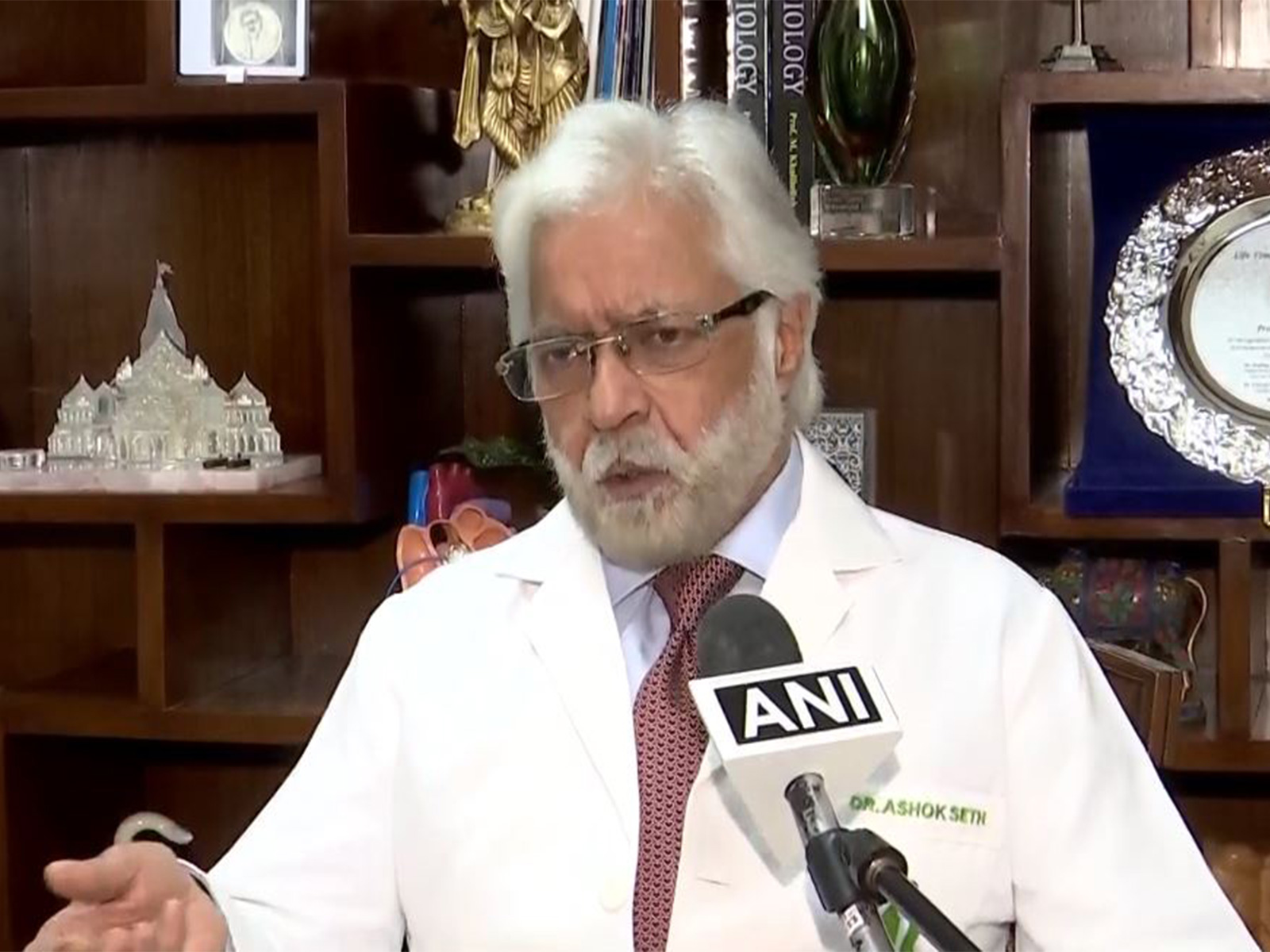New Delhi [India], September 30 (ANI): The heart attack-related cases are rising in India at an age of 20s, which was earlier post-40s.
Speaking with ANI, Dr Ashok Seth’s, Chairman of Fortis Escorts Hospital, Delhi, said, “I think in our country, with heart disease growing earlier and earlier at a younger age, we must not forget heart disease as one of the important causes of chest pain, even in a 20 year old, even in a 25 year old, even a 30 year old heart disease is affecting younger and younger people. So it’s well understood that chest pain cannot be ignored, and it should be clearly seen by a doctor, and a simple test can be performed in such situations to know whether it’s heart disease or not.”
He explained how to differentiate between normal pain and pain in the heart. “For example, a chest pain which comes on walking and decreases and starts going down the arm, but it goes away if the person rests and stops for a few minutes. It’s very suspicious of heart pain, a severe chest pain, like a crushing on the chest, with sweating, nausea, vomiting, almost a sense of doom; it’s very suspicious of a heart attack,” he said.
He also said that sometimes people get confused about heart pain with acidity. “Important aspect is even acidity sometimes and gas and distension, where people think that is just because of some food that they had earlier, which didn’t suit them, if not relief by an antacid, should be suspicion of a heart pain, and therefore be seen within half an hour, if it is not going away and it struggles up by a doctor. In fact, often, many patients come to us having had a heart attack, not knowing it, and two days later, when they are feeling unwell. Having said that, we had a lot of indigestion. We took antacids,” he said.
“Finally, by morning, I was feeling slightly better. I attributed it to chanas or rajma. So yes, it’s very important that we take care of ourselves and not ignore any symptoms, because it could be a heart attack,” he warns.
On medical checkups, required to know about the heart and how genes are responsible, he said, “If there’s a family history of three things. One, a mother or father at an early age in life, has had a heart problem, a heart attack or a sudden collapse and death, because Sudden Death is commonly due to heart attacks. Or brothers or sisters have had heart disease. Finally, a father or mother has both diabetes and hypertension or high blood pressure, then it’s very important to start getting checkups at an early age.”
He stressed that ideally cholesterol levels checkups should start by the age of 10; however, tests like Blood pressure, echocardiogram should be done by the age of 20. “The Document says that if you really want to prevent heart disease, checkups for even cholesterol levels should start by the age of 10,” he said.
“Everyone should certainly have one cardiac checkup, which also includes an echocardiogram, because congenital heart disease is often missed, which presents as a sudden cardiac arrest, etc, much later in life, and can cause a lot of problems. But absolutely, by the age of 20, I believe everyone in this country should have had one checkup done, which also should include what three important things, a BP check, a blood sugar check and a cholesterol check, and an echocardiogram and an ECG, five inexpensive tests by the age of 20 will tell us our own risk factors, and we will then be able to define prevention for ourselves, because prevention of heart disease is based on finding our own risk factors,” he said.
On whether Covid is one of the leading causes behind heart illnesses, he said, “Covid has increased, really, heart-related illnesses. Covid, by itself, was not just a lung disease. Very much earlier on, we ourselves told the public that covid is a heart disease as well, and 50% of deaths from severe covid had to happen because of heart problems. Covid not just caused heart attacks, it also caused heart arrhythmias, the heart rate to go irregular. It also caused weakening of the heart muscle, or cardiomyopathy. It caused a number of disorders, but the most important finding was that it increased the heart attack rate due to clotting of the blood and inflammation of the heart arteries by 200% it doubled the rate, and not just that, over the next year.”
“It is actually the effect of covid, or severe covid in those who recovered, that has been shown in the Western studies of large populations to last for up to three years, that the increased risk of heart attacks stayed with the individual who had severe covid. So covid has certainly increased the whole, whole risk factors for having heart attacks, which is an important thing to keep in mind,” he added.
“Do you realise that India has four times the amount of salt intake as advised by the world? So we are sitting literally having 12 grams of salt when we should be having three grams of salt in a day. And why is that? Because our food is salty, but we love to eat all salty food. Be it samosas, be it kachoris, be it namkeens, be it achars, which is a common factor in our lives. We would be able to decrease the cardiovascular risk by at least 10 to 20% we would be able to decrease blood pressure by 10 to 20. So I think we are actually saying that as a nation, we should eat less salt,” he stressed, reducing the salt intake. (ANI)
Disclaimer: This story is auto-generated from a syndicated feed of ANI; only the image & headline may have been reworked by News Services Division of World News Network Inc Ltd and Palghar News and Pune News and World News
HINDI, MARATHI, GUJARATI, TAMIL, TELUGU, BENGALI, KANNADA, ORIYA, PUNJABI, URDU, MALAYALAM
For more details and packages











